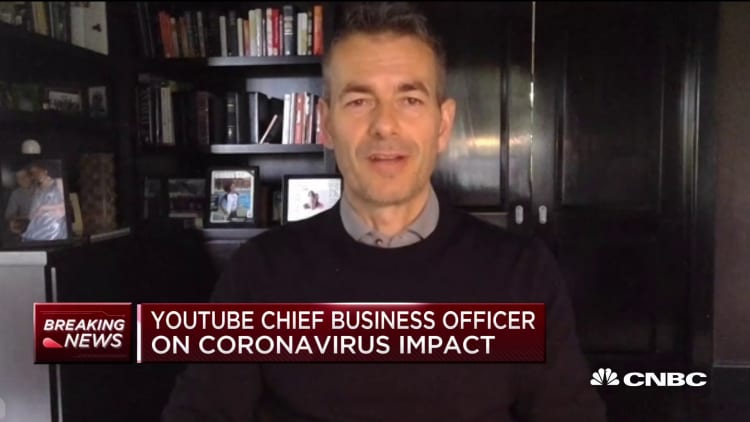Google will soon require all advertisers to verify their identity, the company said in a blog post on Thursday. It's making the change to prevent advertisers from misrepresenting themselves and says it should allow consumers to see who's running ads and which country they're located in.
Consumers have seen a proliferation of ads for products from dubious advertisers, like fake vaccines, in recent months. Fake businesses have also been an issue.
Existing advertisers will have 30 days once notified to complete the verification process, since the company is doing the rollout in phases, according to a spokeswoman. If they don't submit the documents by then, Google said it will suspend the account and the advertiser's ability to serve ads until they provide it.
The company said consumers will start seeing disclosures that list this information on the advertiser when they click "Why this ad?" on placements beginning this summer. Google will begin by verifying advertisers in the U.S. and will expand globally, expecting that the process will take a few years to complete.
Google began requiring political advertisers to verify their identity back in 2018 before running election ads.
"This change will make it easier for people to understand who the advertiser is behind the ads they see from Google and help them make more informed decisions when using our advertising Controls," John Canfield, Google's director of product management for ads integrity, said in the post. "It will also help support the health of the digital advertising ecosystem by detecting bad actors and limiting their attempts to misrepresent themselves."
Once the documents are submitted, advertisers have to commit an "in-account identity check" to confirm they're legitimate. Organizations are required to submit personal legal information (like a W9 or IRS document showing the organization's name, address and employer identification number).
An individual from the organization also needs to provide legal identification on the organization's behalf. Individuals have to show government-issued photo ID like a passport or ID card. Google said it previously had collected basic information about the advertiser but didn't require documentation to verify.
Google will give feedback or provide approval within three to five business days, using a combination of human and tech reviews. Documents are approved by humans, a spokeswoman said.
All advertisers on its platforms will be required to complete the process. Advertising agencies will need to complete verification on behalf of each of their advertiser clients, a spokeswoman said. Though businesses like pharmacies already have to go through certification processes, they will still need to take the new, additional verification steps.



